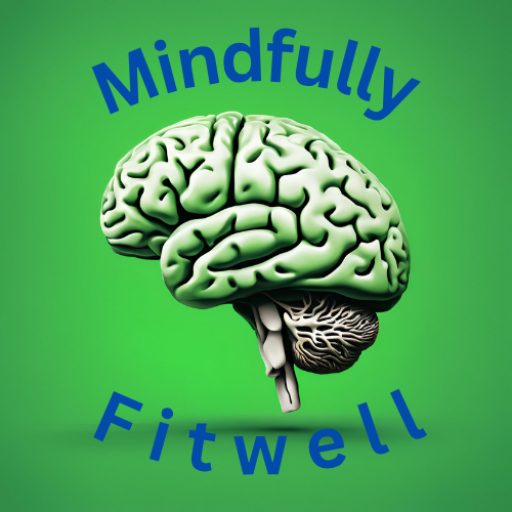Understanding Stress and Anxiety
In today’s fast-paced world, stress and anxiety have become daily struggles for many. Balancing work, personal life, and societal expectations can feel overwhelming. However, implementing effective stress management techniques can significantly improve mental health and overall well-being.
Stress is the body’s natural response to challenges, triggering the “fight or flight” reaction. While short-term stress can be beneficial, chronic stress may lead to serious health problems, including anxiety disorders, depression, and cardiovascular issues. Anxiety is an ongoing state of worry that can persist even in the absence of immediate threats.
By understanding these emotions and learning to manage them, you can take control of your mental health. Below are practical tips to help you reduce stress and anxiety in your daily life.
Practical Tips for Reducing Stress and Anxiety
1. Practice Mindfulness and Meditation
Mindfulness involves staying present in the moment, fostering self-awareness, and reducing negative thoughts. Studies show that regular mindfulness practices, such as meditation, can lower cortisol levels (the stress hormone) and improve overall well-being.
Try a simple breathing exercise: inhale deeply for four seconds, hold for four seconds, and exhale for four seconds. Practicing this technique for a few minutes daily can calm the mind and reduce stress levels.
2. Engage in Regular Physical Activity
Exercise is a powerful stress reliever. It increases the production of endorphins, the body’s natural mood boosters. Activities like walking, yoga, or strength training can help lower anxiety levels and promote relaxation.
Personally, I’ve found that starting my day with a 20-minute morning jog clears my mind and sets a positive tone for the day. Studies suggest that just 30 minutes of moderate exercise a day can have long-term mental health benefits.
3. Prioritize Quality Sleep
Poor sleep can contribute to heightened stress and anxiety. Establishing a healthy sleep routine is crucial for mental wellness. Try the following tips:
- Stick to a consistent sleep schedule
- Avoid screen exposure at least an hour before bedtime
- Create a calming nighttime routine (reading, journaling, or stretching)
If you’re struggling with insomnia, consider cognitive behavioral therapy for insomnia (CBT-I), a proven method to improve sleep quality.
4. Build Strong Social Connections
Social interactions play a key role in managing stress. Spending time with loved ones, joining a support group, or even engaging in casual conversations with friends can significantly improve mood and lower anxiety.
If in-person meetings aren’t possible, virtual meetups or even simple phone calls can offer much-needed emotional support. Studies confirm that people with strong social connections have lower stress levels and better overall health.
5. Learn to Set Boundaries
Many people struggle with saying “no,” leading to overcommitment and burnout. Prioritizing your well-being isn’t selfish—it’s necessary. Learning to set healthy boundaries can prevent unnecessary stress and protect your mental health.
Practical steps:
- Assess your commitments and identify areas of overwhelm
- Politely decline additional tasks when needed
- Set realistic goals and communicate them clearly
6. Utilize Relaxation Techniques
Incorporating relaxation methods such as deep breathing, guided imagery, or progressive muscle relaxation can help manage stress effectively. Research supports that deep breathing can activate the parasympathetic nervous system, promoting a state of calmness.
Try the 4-7-8 breathing technique:
- Inhale for four seconds
- Hold for seven seconds
- Exhale for eight seconds
Repeating this for five cycles can help reset the nervous system and promote relaxation.
7. Seek Professional Help When Needed
If stress and anxiety become overwhelming, seeking professional support is a proactive step. Therapy, counseling, or enrolling in a Stress Management Course to Improve Mental Health can provide structured guidance and coping techniques.
Unlike generic self-help resources, this course offers personalized strategies tailored to different stress triggers, helping individuals build resilience and adopt long-term coping mechanisms. Participants gain access to expert insights, guided exercises, and a supportive community, ensuring a comprehensive approach to stress management. If stress and anxiety become overwhelming, seeking professional support is a proactive step. Therapy, counseling, or enrolling in a Stress Management Course to Improve Mental Health can provide structured guidance and coping techniques.
Professional courses offer tailored strategies to handle stress effectively, equipping individuals with tools to develop resilience and long-term well-being.
The Importance of Ongoing Practice
Managing stress and anxiety is an ongoing process. Regularly implementing these techniques can result in lasting improvements. Additionally, it’s important to periodically update your stress management strategies with new research, emerging techniques, and personal experiences to ensure continued mental wellness. Keeping up with the latest insights can help refine your approach and maximize effectiveness.
Managing stress and anxiety is an ongoing process. Regularly implementing these techniques can result in lasting improvements. Periodically updating your stress management strategies based on your needs ensures continued mental wellness.
External Resources:
- Mayo Clinic: Stress Management (Regularly updated with the latest research)
- American Psychological Association: Managing Stress (Includes new insights on coping mechanisms)
- National Institute of Mental Health: Coping with Stress (Government-backed guide to managing stress effectively) Mayo Clinic: Stress Management
- American Psychological Association: Managing Stress
Call to Action
If you’re looking to take proactive steps toward better mental health, consider enrolling in our Stress Management Course to Improve Mental Health. This course provides expert guidance and practical strategies to help you navigate stress effectively.
Additionally, if you found this article helpful, please share it with friends or on social media to help others who may benefit from these insights! Tag us @MindfullyFitWell or use the hashtag #StressFreeLiving to join the conversation and spread awareness.

